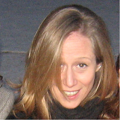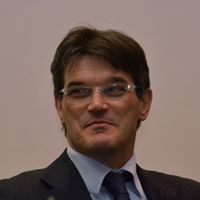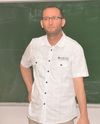Studying at the University of Verona
Here you can find information on the organisational aspects of the Programme, lecture timetables, learning activities and useful contact details for your time at the University, from enrolment to graduation.
Academic calendar
The academic calendar shows the deadlines and scheduled events that are relevant to students, teaching and technical-administrative staff of the University. Public holidays and University closures are also indicated. The academic year normally begins on 1 October each year and ends on 30 September of the following year.
Course calendar
The Academic Calendar sets out the degree programme lecture and exam timetables, as well as the relevant university closure dates..
| Period | From | To |
|---|---|---|
| Semester 1 | Oct 3, 2022 | Jan 27, 2023 |
| Semester 2 | Mar 6, 2023 | Jun 16, 2023 |
| Session | From | To |
|---|---|---|
| Sessione invernale d'esame | Jan 30, 2023 | Mar 3, 2023 |
| Sessione estiva d'esame | Jun 19, 2023 | Jul 31, 2023 |
| Sessione autunnale d'esame | Sep 4, 2023 | Sep 29, 2023 |
| Period | From | To |
|---|---|---|
| Ponte Festa di tutti i Santi | Oct 31, 2022 | Nov 1, 2022 |
| Ponte dell'Immacolata Concezione | Dec 8, 2022 | Dec 9, 2022 |
| Vacanze natalizie | Dec 23, 2022 | Jan 8, 2023 |
| Vacanze di Pasqua | Apr 7, 2023 | Apr 10, 2023 |
| Festa della Liberazione | Apr 24, 2023 | Apr 25, 2023 |
| Festa dei Lavoratori | May 1, 2023 | May 1, 2023 |
| Festa del Santo Patrono | May 21, 2023 | May 21, 2023 |
| Festa della Repubblica | Jun 2, 2023 | Jun 2, 2023 |
| Chiusura estiva | Aug 14, 2023 | Aug 19, 2023 |
Exam calendar
Exam dates and rounds are managed by the relevant Science and Engineering Teaching and Student Services Unit.
To view all the exam sessions available, please use the Exam dashboard on ESSE3.
If you forgot your login details or have problems logging in, please contact the relevant IT HelpDesk, or check the login details recovery web page.
Should you have any doubts or questions, please check the Enrollment FAQs
Academic staff
 mauro.bonafini@univr.it
mauro.bonafini@univr.it
 michele.ginesi@univr.it
michele.ginesi@univr.it
 luca.selmi@unimore.it
luca.selmi@unimore.it
 claudio.tomazzoli@univr.it
claudio.tomazzoli@univr.it
 ihsen.yengui@univr.it
ihsen.yengui@univr.it
 franco.zivcovich@univr.it
franco.zivcovich@univr.it
Study Plan
The Study Plan includes all modules, teaching and learning activities that each student will need to undertake during their time at the University.
Please select your Study Plan based on your enrollment year.
1° Year
| Modules | Credits | TAF | SSD |
|---|
2° Year activated in the A.Y. 2023/2024
| Modules | Credits | TAF | SSD |
|---|
3° Year It will be activated in the A.Y. 2024/2025
| Modules | Credits | TAF | SSD |
|---|
1 module among the following| Modules | Credits | TAF | SSD |
|---|
| Modules | Credits | TAF | SSD |
|---|
| Modules | Credits | TAF | SSD |
|---|
1 module among the following| Modules | Credits | TAF | SSD |
|---|
Legend | Type of training activity (TTA)
TAF (Type of Educational Activity) All courses and activities are classified into different types of educational activities, indicated by a letter.
Mathematical Analysis I (2022/2023)
Teaching code
4S009864
Academic staff
Coordinator
Credits
6
Language
Italian
Scientific Disciplinary Sector (SSD)
MAT/05 - MATHEMATICAL ANALYSIS
Period
Semester 1 dal Oct 3, 2022 al Jan 27, 2023.
Learning objectives
The course will treat the fundamental concepts of mathematical analysis: the aim is to provide a bet- ter consciousness of the analytic methods in view of applications of analysis. At the end of the course, the students shall prove of being able: to apply mathematical analysis techniques to the solution of problems about functions, derivatives, integrals and series also in different contexts even not strictly mathematical; to apply mathematical analysis techniques to solution of problems; to choose among the various techniques the one better suited to the problem at hand; to describe the solution of a problem employing correct terminology; to widen their knowledge starting from what they learned.
Prerequisites and basic notions
Basic knowledge required for enrollment in the course of study.
Program
Introduction.
Intuitive notion of set, notions of logic, elementary set operations, numerical sets, lower and upper bound, infimum and supremum, minimum and maximum, continuity axiom for real numbers, complex numbers. Definition of a function, injective function, surjective function, function composition and inverse function.
Sequences.
Definition of a sequence, monotone sequences, bounded sequences, definition of limit for a sequence, uniqueness of the limit, algebra of limits, comparisons and asymptotic estimates. Indeterminate forms and calculation of limits.
Real functions of a real variable.
Bounded functions, maximum and minimum, periodic functions, monotone functions. Graph of a function, elementary operations on the graph.
Continuity.
Notion of continuity for a real valued function of a real variable. Continuous functions on a closed and bounded interval: existence of zeros, Weierstrass' theorem, intermediate values theorem.
Limits.
Accumulation points, limits for real valued functions of a real variable, algebra of limits. Simple limits, comparisons, asymptotic estimates, change of variable within limits and calculation of limits.
Derivative.
Definition of derivative of a real valued function of a real variable, tangent line. Calculus of derivatives for elementary functions, algebra of derivatives, derivative of the composition, derivative of the inverse function. Angular points, cusps, inflections with vertical tangents, continuity and derivability. Stationary points, local maximums and minimums. Differentiable functions on an interval: Fermat's theorem, Lagrange's (or mean value) theorem, monotony test. De l'Hospital's theorem. Second derivative: geometric meaning, concavity, convexity. Study of the graph of a function. Approximations: notion of ``small o'', MacLaurin / Taylor polynomial, MacLaurin-Taylor formula with Peano and Lagrange remainder. Application to the calculation of limits by asymptotic expansion.
Series.
Numerical series and convergence criteria (comparison, asymptotic comparison, ratio and root criteria, Leibniz criterion). Taylor series.
Integral calculus.
Definition of integral and various interpretations, classes of integrable functions, properties of the integral, mean-value theorem. Notion of primitive and fundamental theorem of integral calculus. Methods for finding a primitive: immediate integrals, integrals by substitution, integrals by parts, integrals of rational functions. Integral functions and second fundamental theorem of integral calculus. Applications of integral calculus. Generalized integrals: integrals of unbounded functions and integrability criteria; integration over unlimited intervals and integrability criteria.
Differential equations.
Concept of differential equation and its solution. First order differential equations with separable variables, how to solve them, existence and uniqueness theorem for the Cauchy problem. Linear differential equations of the first and second order: existence of solutions, structure of the general integral, how to solve them.
Bibliography
Didactic methods
Lecture.
Learning assessment procedures
The exam consists of a 3-hour written test and covers all the topics covered during the course, theory and exercises. Regarding the theoretical part, all definitions / statements are subject to examination. As for the proofs, at the end of the course a list of proofs to know will be identified and the exam will include at least one question such as "State and prove theorem X".
Cheat sheet.
It is allowed to bring cheat sheet, that is
- single A4 page
- handwritten (by yourself)
- name-surname-matriculation number written at the top
- on the space available you can write whatever you want.
The cheat sheet must be delivered together with the exam.
Structure.
The exam is divided into two parts.
The first part, the preliminary test, includes 8 short exercises. The preliminary test is considered passed by solving at least 6 out of 8 exercises, otherwise the candidate is automatically rejected.
The second part, the complete test, it includes exercises and theoretical questions.
Score.
Passing the preliminary test assigns 3 points, the various exercises of the complete test assign 30 points, for a total of 33 points.
Registration of the exam.
The final grade is given by the minimum between the score obtained and 30. Each sufficient grade, i.e. from 18/30 upwards, can be accepted and consequently recorded.
Oral exam (optional).
The oral exam focuses on theory, is optional and can be taken by all candidates who have achieved at least 17/30. Attention: with the oral test, even if you start with a sufficient grade, you may be rejected and forced to repeat the written test. The oral exam is a necessary condition for "30 e lode''.
Evaluation criteria
Understanding of the topics covered during the course and ability to apply the notions acquired in solving exercises and constructing new sentences.
Criteria for the composition of the final grade
Mark of the written exam (plus an optional oral if requested).
Exam language
Italiano
Type D and Type F activities
Le attività formative di tipologia D sono a scelta dello studente, quelle di tipologia F sono ulteriori conoscenze utili all’inserimento nel mondo del lavoro (tirocini, competenze trasversali, project works, ecc.). In base al Regolamento Didattico del Corso, alcune attività possono essere scelte e inserite autonomamente a libretto, altre devono essere approvate da apposita commissione per verificarne la coerenza con il piano di studio. Le attività formative di tipologia D o F possono essere ricoperte dalle seguenti attività.
1. Insegnamenti impartiti presso l'Università di Verona
Comprendono gli insegnamenti sotto riportati e/o nel Catalogo degli insegnamenti (che può essere filtrato anche per lingua di erogazione tramite la Ricerca avanzata).
Modalità di inserimento a libretto: se l'insegnamento è compreso tra quelli sottoelencati, lo studente può inserirlo autonomamente durante il periodo in cui il piano di studi è aperto; in caso contrario, lo studente deve fare richiesta alla Segreteria, inviando a carriere.scienze@ateneo.univr.it il modulo nel periodo indicato.
2. Attestato o equipollenza linguistica CLA
Oltre a quelle richieste dal piano di studi, per gli immatricolati A.A. 2021/2022 e A.A. 2022/2023 vengono riconosciute:
- Lingua inglese: vengono riconosciuti 3 CFU per ogni livello di competenza superiore a quello richiesto dal corso di studio (se non già riconosciuto nel ciclo di studi precedente).
- Altre lingue e italiano per stranieri: vengono riconosciuti 3 CFU per ogni livello di competenza a partire da A2 (se non già riconosciuto nel ciclo di studi precedente).
Tali cfu saranno riconosciuti, fino ad un massimo di 3 cfu complessivi, di tipologia D. Solo nel caso in cui la data di acquisizione della certificazione sia precedente al 27/10/2023 (data della delibera del Collegio didattico di Ingegneria dell'Informazione) potranno essere riconosciuti un massimo di 6 CFU, come precedentemente previsto. Ulteriori crediti a scelta per conoscenze linguistiche potranno essere riconosciuti solo se coerenti con il progetto formativo dello studente e se adeguatamente motivati.
Per gli immatricolati A.A. 2023/2024 i crediti per certificazioni linguistiche ulteriori a quelle previste dal piano didattico vengono riconosciuti come crediti sovrannumerari taf D.
Modalità di inserimento a libretto: richiedere l’attestato o l'equipollenza al CLA e inviarlo alla Segreteria Studenti - Carriere per l’inserimento dell’esame in carriera, tramite mail: carriere.scienze@ateneo.univr.it
3. Competenze trasversali
Scopri i percorsi formativi promossi dal TALC - Teaching and learning center dell'Ateneo, destinati agli studenti regolarmente iscritti all'anno accademico di erogazione del corso https://talc.univr.it/it/competenze-trasversali
Modalità di inserimento a libretto: non è previsto l'inserimento dell'insegnamento nel piano di studi. Solo in seguito all'ottenimento dell'Open Badge verranno automaticamente convalidati i CFU a libretto. La registrazione dei CFU in carriera non è istantanea, ma ci saranno da attendere dei tempi tecnici.
4. CONTAMINATION LAB
Il Contamination Lab Verona (CLab Verona) è un percorso esperienziale con moduli dedicati all'innovazione e alla cultura d'impresa che offre la possibilità di lavorare in team con studenti e studentesse di tutti i corsi di studio per risolvere sfide lanciate da aziende ed enti. Il percorso permette di ricevere 6 CFU in ambito D o F. Scopri le sfide: https://www.univr.it/clabverona
ATTENZIONE: Per essere ammessi a sostenere una qualsiasi attività didattica, incluse quelle a scelta, è necessario essere iscritti all'anno di corso in cui essa viene offerta. Si raccomanda, pertanto, ai laureandi delle sessioni di dicembre e aprile di NON svolgere attività extracurriculari del nuovo anno accademico, cui loro non risultano iscritti, essendo tali sessioni di laurea con validità riferita all'anno accademico precedente. Quindi, per attività svolte in un anno accademico cui non si è iscritti, non si potrà dar luogo a riconoscimento di CFU.
5. Periodo di stage/tirocinio
Oltre ai CFU previsti dal piano di studi (verificare attentamente quanto indicato sul Regolamento Didattico): qui il VADEMECUM DELLE ATTIVITÀ DI TIROCINIO (indirizzo email della Commissione tirocini: tirocini-ismp@ateneo.univr.it ); qui la relativa pagina informativa (con link a moodle) qui informazioni su come attivarlo.
Insegnamenti e altre attività che si possono inserire autonomamente a libretto
| years | Modules | TAF | Teacher | |
|---|---|---|---|---|
| 1° | Seminari di sistemi medicali (I anno) | F |
Luigi Rovati
|
|
| 2° | Seminari di sistemi medicali (II anno/1) | F |
Luigi Rovati
|
|
| 2° | Seminari di sistemi medicali (II anno/2) | F |
Luigi Rovati
|
|
| 2° 3° | Matlab-Simulink programming | D |
Bogdan Mihai Maris
(Coordinator)
|
|
| 2° 3° | Rapid prototyping on Arduino | D |
Franco Fummi
(Coordinator)
|
|
| years | Modules | TAF | Teacher | |
|---|---|---|---|---|
| 1° | Seminari di sistemi medicali (I anno) | F |
Luigi Rovati
|
|
| 2° | Chirurgia robotica | D |
Gianluigi Califano
|
|
| 2° | Movimento e salute | D |
Federico Schena
|
|
| 2° | Seminari di sistemi medicali (II anno/1) | F |
Luigi Rovati
|
|
| 2° 3° | Introduction to 3D printing | D |
Franco Fummi
(Coordinator)
|
|
| 2° 3° | LaTeX Language | D |
Enrico Gregorio
(Coordinator)
|
|
| 2° 3° | Python programming language | D |
Carlo Combi
(Coordinator)
|
|
| 2° 3° | HW components design on FPGA | D |
Franco Fummi
(Coordinator)
|
|
| 2° 3° | Protection of intangible assets (SW and invention)between industrial law and copyright | D |
Roberto Giacobazzi
(Coordinator)
|
|
| years | Modules | TAF | Teacher |
|---|---|---|---|
| 1° | Subject requirements: mathematics | D |
Franco Zivcovich
|
Career prospects
Module/Programme news
News for students
There you will find information, resources and services useful during your time at the University (Student’s exam record, your study plan on ESSE3, Distance Learning courses, university email account, office forms, administrative procedures, etc.). You can log into MyUnivr with your GIA login details: only in this way will you be able to receive notification of all the notices from your teachers and your secretariat via email and soon also via the Univr app.
Attendance
The inter-university nature of the course of study lies in the cooperation of the three universities in the provision of faculty. Therefore, teaching delivery takes place at the administrative and teaching site in Verona and not in the partner universities. This means that it is not possible to attend this bachelor's degree program in the University of Trento or Modena-Reggio Emilia; however, it is possible to use the study spaces of the partner universities, thanks to the agreement between them.
As stated in the Didactic Regulations for A.Y. 2022/2023, course attendance is not mandatory.
Career management
Student login and resources
Erasmus+ and other experiences abroad
Graduation
List of theses and work experience proposals
| theses proposals | Research area |
|---|---|
| THESIS_1: Sensors and Actuators for Applications in Micro-Robotics and Robotic Surgery | Various topics |
| THESIS_2: Force Feedback and Haptics in the Da Vinci Robot: study, analysis, and future perspectives | Various topics |
| THESIS_3: Cable-Driven Systems in the Da Vinci Robotic Tools: study, analysis and optimization | Various topics |

 0461 283551
0461 283551























